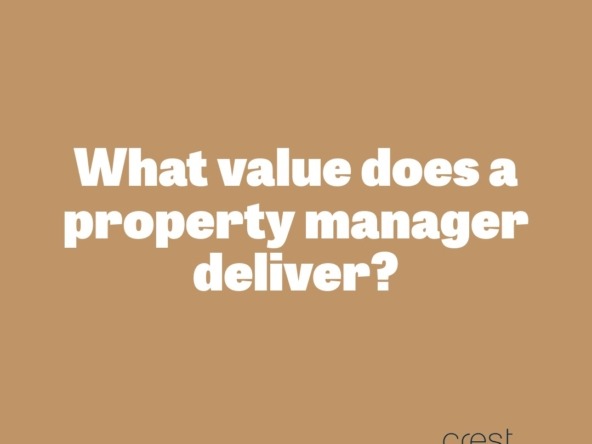Common types of property ownership. When buying a property, there are a number of different ways you can own it. Depending on your circumstances and/or objectives, each ownership type provides its own advantages and disadvantages.
In this market insight, we highlight some of the most common types of property ownership. There are various factors to consider when assessing the best suits property ownership, including simplicity, asset protection, tax benefits, financing, estate planning, capital gains tax and your personal circumstances. Selecting the right property ownership can be easy for some buyers, but it can be a complex decision too. You do have the flexibility to alter an existing ownership type, but this can be an expensive exercise. You’ll likely be required to service legal costs, capital gains tax, accounting fees and stamp duty etc. This is why its important to take careful consideration into your current and future circumstances, understand your objectives and most definitely seek professional advice. Your accountant or financial adviser will be the most qualified people to offer you property ownership advice.
Property ownership types:
1. Buying property in your ‘personal name’
The most simple form of property ownership is buying a property in your personal name. This can be as an individual or as joint owners (i.e. husband and wife). This is also the most common ownership type. It’s the easiest way to borrow funds (mortgage), it offers tax entitlements to the owners (such as tax depreciation, property expenses, loan interest etc) and also provides the owner to claim a full capital gains tax (CGT) exemption when selling.
Property investors don’t always have the same objectives, nor do they generate the same sort of employment income. Some may want to employ a positive or negative gearing strategy. It may be the simplest forms to buy, it can also come with risks, depending on your individual circumstances.

2. Buying a property in a ‘Trust’
There are a number of different types of trusts, which we will not elaborate in this market insight. However a trust is effectively a legal entity. It’s a popular way to own a property as it provides asset protection and suits a well structured estate planning strategy.
A trust allows for a number of individuals or a company can take part in the property ownership and be listed as nominated beneficiaries, but they are not actually considered owners of the property held within the trust. This is where a trust can offer the asset protection for buyers. A trust can also distributes profits from the trust to multiple beneficiaries which may have its advantages. It can be a more comprehensive set up to purchase a property while the costs to set a trust and to administer each year can be costly. Seeking advice from an accountant is very important if considering this type of property ownership.
3. Company ownership
This is another form of property ownership. It’s not so common to own a residential property through a company as its more notable for companies to purchase a property to occupy their business. It’s not seen to offer the same tax benefits due to the fact it is not eligible for the full CGT exemption. Obtaining finance can be difficult but the risks of owning a property in an operating company can be high. If a company is sued, they property is at risk. Careful consideration into your company and personal circumstances is critical. It’s essential to seek advice from an accountant.

4. Self Managed Super Fund (SMSF)
Self Managed Super Funds have been widely popular over the last two decades for its control and flexibility it offers people to manage their superannuation. The popularity of purchasing an investment property through a SMSF is trending. It offers some great opportunities of allowing you to leverage your superannuation to borrow additional money, but this comes with risk. Anytime you can magnify your gains, you are also potentially magnifying your losses. There are several structures that are required and they need to be done correctly. The costs are also quite high, so you need to make sure they are feasible for you. Buying property is among the most rewarding assets you’ll ever own, but you also need to make sure you administer your SMSF by following various rules and obligations. A financial adviser is your number one person to discuss the advantage and disadvantages of a SMSF.
Lending is also different and rates/fees are generally higher. Working with some trusted professionals will help you. It is the most complex property ownership, so guidance is essential. One of the best benefits of buying a property in a SMSF is the low tax rate, currently at 15%. This means the rent will only be taxed at 15%, while the tax deductions can also be used to reduce the tax liability from your 15% contributions tax. At retirement, the SMSF will be entitled to a 0% tax rate which means both the income (rent) and profit (capital gains) will be tax free.
What to do next?
In the year of 2023, sensible and strategic planning will see you find some great investment value in the property market. Seeking professional advice is the key to your success. If you have developed adequate equity, this may be an incredible opportunity to enhance your wealth and taking the next step to reaching a successful retirement.
If you’d like to learn more about buying an investment property, please don’t hesitate to contact us. We would welcome the opportunity to help with your property purchase. Our YouTube channel and Market Insights also provide a wealth of information to assist you with many areas relating to property.
While we have taken care to ensure the information above is true and correct at the time of publication, changes in circumstances and legislation after the displayed date may impact the accuracy of this article. If you want to learn more, please contact us. We welcome the opportunity to assist you.
April 2023




